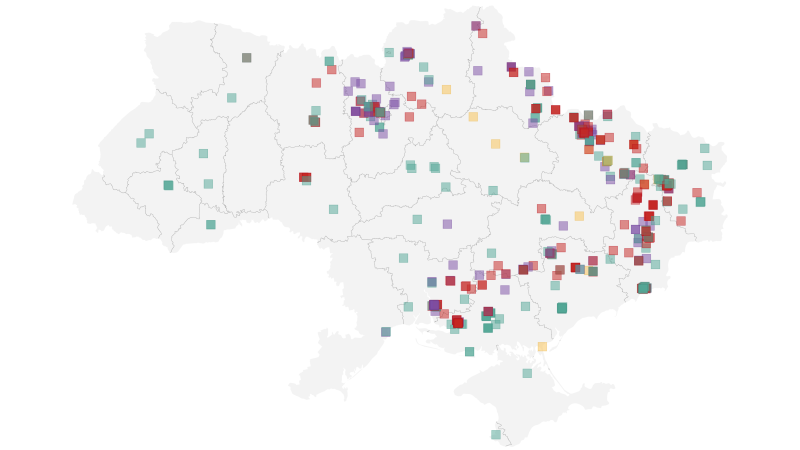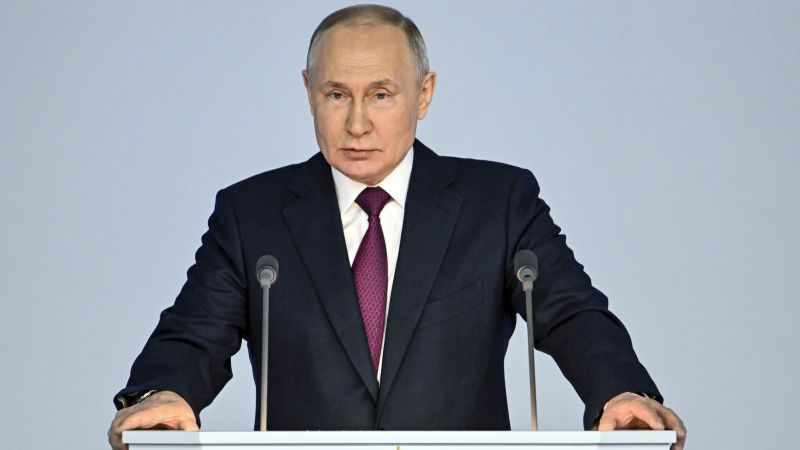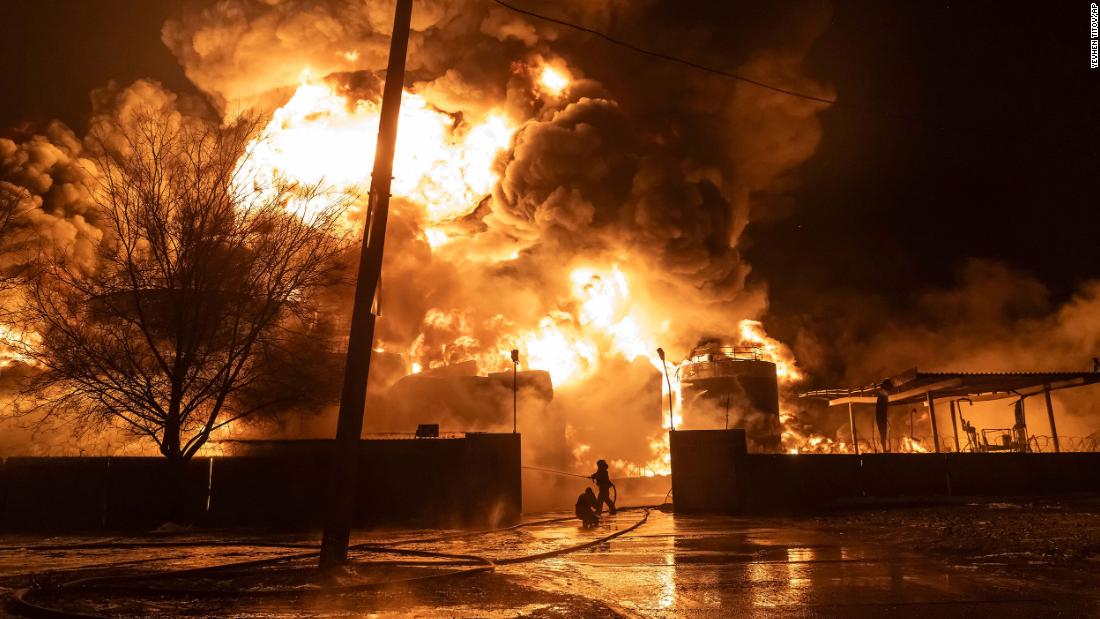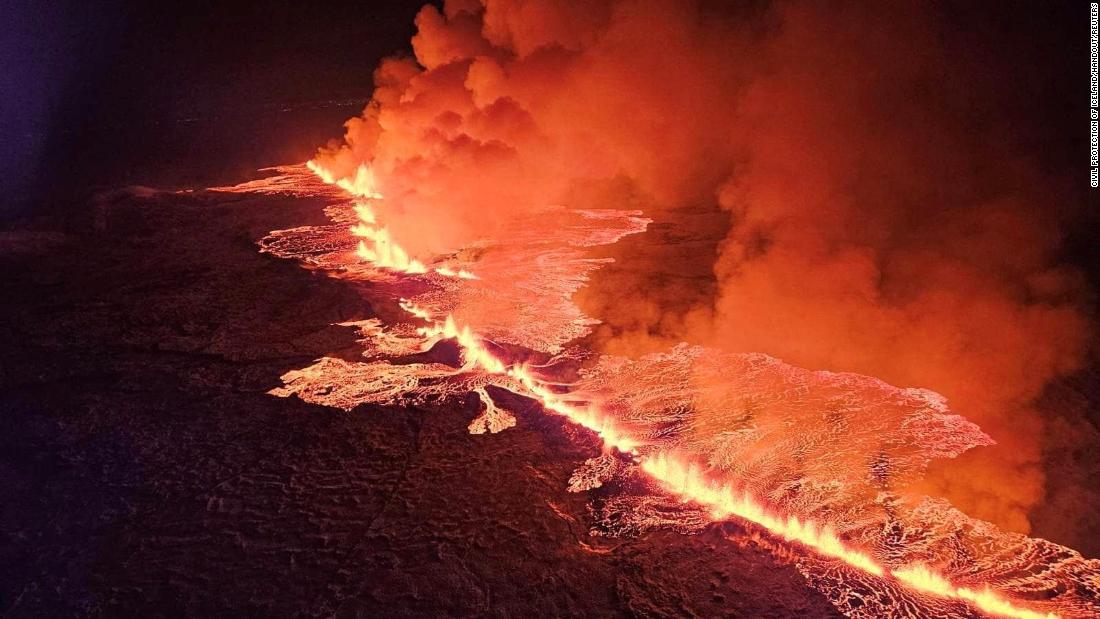Report: Nearly one in every 10 hospitals in Ukraine have been damaged by attacks since Russia’s invasion

CNN
—
At 5:20 p.m. on April 19 last year, a Russian missile hit the only hospital in Bashtanka, a district center in southern Ukraine. The explosion destroyed an outpatient clinic and some critical equipment, while the blast wave ripped through the rest of the hospital buildings, shattering windows and knocking out doors.
Several patients were undergoing surgery and a number of women were in a labor ward at the time, Bashtanka Hospital director Alla Barsehian told CNN last week.
All patients were safely evacuated, but health care workers turned up to work the next morning. In the rain, shoulder to shoulder with their friends and family, they began cleaning up the debris by hand. One and a half days later – with plastic wrap for windows and no doors – the facility reopened.
“We are the lifeblood of this district,” Barsehian said. She told CNN when she returned to the destroyed buildings the day after the attack, patients approached her and asked when the next appointment for their doctor was available — this is when she realized they had no choice but to carry on. “We didn’t have time [to deliberate], we had to quickly restore everything and continue doing our jobs because people needed us.”
The explosion in Bashtanka came just over a month after a similar attack destroyed Mariupol maternal hospital in March 2022. Russian officials then claimed that the hospital was a justifiable military target, but a pattern was emerging.
More than 250 attacks during Russia’s invasion last year left nearly one in 10 Ukrainian hospitals damaged, some repeatedly, according to new analysis reviewed by CNN by investigators from the United States, United Kingdom, Switzerland and Ukraine published Tuesday.
The analysis is a joint undertaking of five different non-governmental organizations (NGOs): eyeWitness to Atrocities (eyeWitness), Insecurity Insight, the Media Initiative for Human Rights (MIHR), Physicians for Human Rights (PHR), and the Ukrainian Healthcare Center (UHC). CNN has reviewed their analysis but cannot independently confirm the details of each attack.
Nearly 200 medical workers, who at the time of war are protected under international human rights laws, were either killed, injured, kidnapped or arrested, the collaboration between the NGOs revealed.
Researchers documented 707 health care attacks between February and December 2022, including damage to facilities, such as strikes by ground-launched explosives, and other attacks, such as looting, denial of access to health care and disruption of patients’ access to utilities necessary for medical care.
“These findings should be a wake-up call for the global community to act now to end impunity for wanton violence against health workers, in Ukraine and around the world,” Christian De Vos, report co-author and research director at Physicians for Human Rights, a US-based human rights NGO, told CNN.
“While violence against health care in conflict zones is a global phenomenon, Russia’s assault on Ukraine’s health system in 2022 stands out for its scale and indiscriminate violence against civilian infrastructure,” said Christina Wille, report co-author and director of Insecurity Insight, a Swiss non-profit organization monitoring threats of violence across the globe.
“We have clearly seen from the pattern [in the data] a method of warfare which is incompatible with the respect for international humanitarian law and needs to be addressed,” Wille told CNN, referring to incidents of indiscriminate use of explosive weapons against Ukraine listed in the report and alleged cases of kidnapping and torture of individual health workers.
CNN has asked the Russian government for comment but has not yet received a response. Russia has previously claimed that it only fires on targets of military value. Following the 2022 attack at the Mariupol maternity and children’s hospital, Russian Foreign Ministry spokeswoman Maria Zakharova claimed — without providing evidence — that Ukrainian forces had “equipped combat positions” within the hospital. Video from the hospital after the bombing clearly showed there were both patients and staff there, including heavily pregnant women who were carried from the hospital.
Nearly a year into the war, Russia is mounting enormous pressure on Ukrainian civilians by using explosive weapons in urban areas, and damaging crucial services, such as the energy grid and the health care system.
Nearly one in three Ukrainians lack access to medical services — and that number is greater in the eastern and southern parts of the country — according to a December 2022 survey by the United Nations’ International Organization for Migration.
Experts warn that civilians are left with hardly any access to medical care in areas that have seen active combat. Nearly 80% of Mariupol’s health care facilities are destroyed, leaving the city’s remaining population of 100,000, many of them vulnerable or elderly, practically on their own, according to previous research by the Ukrainian Healthcare Center (UHC) think tank, one of the report partners. By June last year, at least 320,000 Mariupol citizens have either fled, been forcibly relocated or died, according to Mariupol’s City Council.
“An implicit loss of health [in Ukraine] is vast,” said Pavlo Kovtoniuk, UHC co-founder and Ukraine’s former Deputy Minister of Health. “We see a huge deprivation of health care services and pharmaceuticals in recently de-occupied territories.”
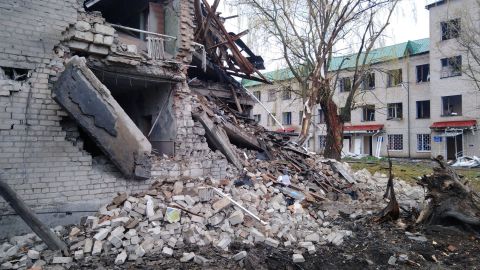
But even away from the frontline, small to medium communities are feeling the effects of the attacks on their health care facilities and workers. Like Bashtanka, they are normally served by just one hospital or clinic, Kovtoniuk said, adding that disruptions result in people dropping their medication for chronic conditions, stopping health checkups or suffering from mental health issues alone, the consequences of which will only be seen in years to come.
“Russian attacks have an impact that exists long after the physical damage to a building; lack of access to necessary care and essential medicines destabilizes the population at large,” De Vos told CNN. “I think that is precisely why the health care is often targeted.”
Kovtoniuk’s team and their colleagues at the Media Initiative for Human Rights (MIHR) traveled across Ukraine in the last year to visit attack sites, assess damage and interview victims. They used specialized software designed by UK-based eyeWitness to Atrocities, another report partner, to document what happened on the ground in a way that could be submitted as legal evidence in national and international criminal cases related to the war.
For locations that were impossible to reach due to combat or occupation, a group of Ukrainian and international investigators gathered social media reports and checked them against satellite imagery to verify that the events actually took place, Kovtoniuk said.
“The report is the very first comprehensive effort to map and analyze attacks on Ukrainian health care infrastructure and personnel by Russian forces,” said Iryna Marchuk, an associate professor of international and criminal law at the University of Copenhagen, who was not part of the research.
“The health care infrastructure in Ukraine has been deliberately targeted by Russian forces, which is absolutely prohibited in international humanitarian law and constitutes a war crime falling within the jurisdiction of the International Criminal Court,” Marchuk said in an emailed statement last week.
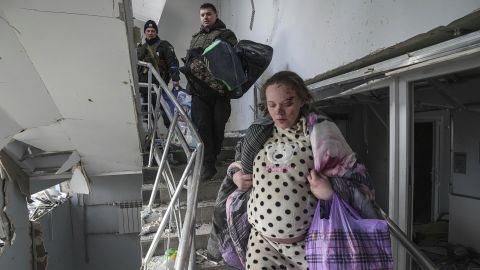
The Geneva Conventions qualify indiscriminate bombing in populated areas, failure to distinguish between combatants and civilians, and intentionally directing attacks against distinctively marked medical units, transport, and personnel as war crimes. The United Nations considers deliberate, strategic targeting of civilian populations a crime against humanity.
The World Health Organization (WHO) maintains its own database of attacks on health care facilities, transport, supplies and personnel in Ukraine. WHO counted 774 attacks from the start of Russia’s invasion through the end of 2022, with 101 deaths and 131 injuries of medical personnel and other civilians on the ground. However, it does not disclose precise details of the attacks in this database.
The coalition of investigators from the UHC, MIHR, PHR, Insecurity Insight and eyeWitness is urging the international legal community to investigate the evidence it gathered.
“When Russia entered the war in Syria in 2015, it used the same tactic, but it was never held accountable for that, so it decided to use it again in Ukraine,” Kovtoniuk told CNN.
Richard Goldstone, former justice of the Constitutional Court of South Africa who was instrumental in helping end apartheid in South Africa, said he found the report to be damning. “I anticipate that it will assist in bringing some of the criminals responsible for these atrocities to justice,” he said in an emailed statement.
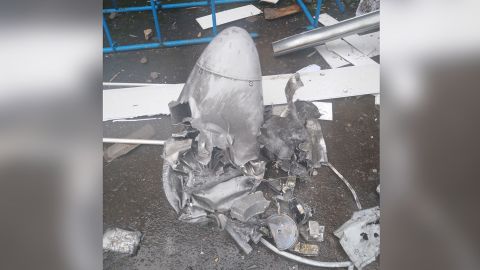
Evidence from the Tuesday report is likely to be presented at a non-binding tribunal this week in The Hague, Stephen Rapp told CNN. Rapp, a former US ambassador-at-large for war crimes issues, is one of three judges hearing evidence on aggression in Ukraine. Rapp says the tribunal will decide whether there is sufficient evidence to confirm an indictment and issue an arrest warrant for Russian President Vladimir Putin. “We hope that our proceedings will inspire the UN General Assembly to authorize the Secretary General to enter into an agreement with Ukraine to establish a tribunal with legal jurisdiction over aggression in Ukraine,” Rapp told CNN.
Back in Bashtanka, the hospital was rebuilt by the end of summer 2022 with the help of donors and volunteers from across the country, Barsehian said. And far from scaring the health workers away, the attacks have only made them more determined.
“Our job is not harder than the soldiers’ one. We are used to all sorts of challenges,” said Barsehian. “We were not scared, we were angry.”


